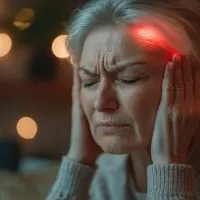Menopause and perimenopause can have a significant impact on gut health and digestion due to hormonal fluctuations, particularly the decline in oestrogen and progesterone. These hormonal changes affect the digestive system by altering gut motility, enzyme production, and gut microbiome balance. Oestrogen helps regulate the digestive tract, and as its levels decrease, women may experience slower digestion, constipation, bloating, and other gastrointestinal issues. Additionally, progesterone’s relaxing effect on smooth muscles can lead to slower bowel movements and discomfort. These changes can also affect appetite, causing cravings or changes in dietary preferences.
Gut & Digestion
Managing gut health during menopause may involve dietary adjustments, staying hydrated, regular physical activity, and stress management.












